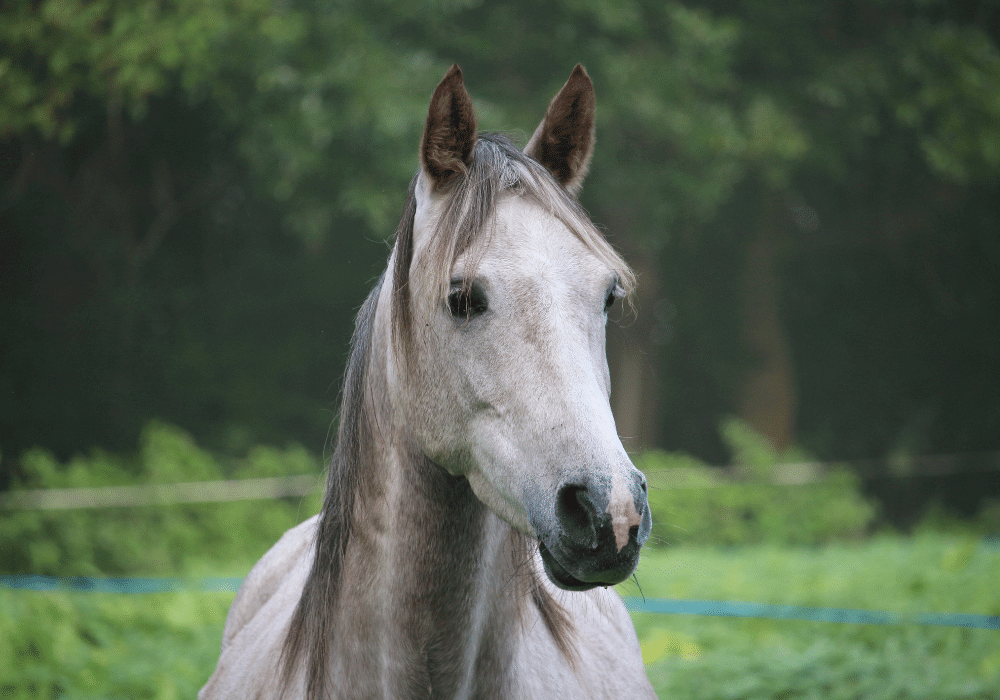Horses and ponies can suffer from a number of different respiratory problems. Some, including strangles and equine influenza (equine flu) are infectious. Others, such as equine asthma are not infectious and are triggered by allergens. This blog article outlines some of the symptoms of respiratory problems, as well as the causes of respiratory diseases in horses.
Symptoms of Respiratory Problems in Horses
Early Symptoms
The early signs of respiratory problems tend to be similar for infectious and non-infectious diseases. Coughing, nasal discharge and reluctance to exercise can all be signs of respiratory disease. It is always a good idea to call your vet if you suspect a respiratory problem, regardless of whether you believe it to be infectious or non-infectious.
Symptoms of Infectious Respiratory Problems
In addition to the signs mentioned above, horses with an infectious respiratory disease may also have a fever, appear off colour or depressed, or have a loss of appetite. You may also notice that the lymph nodes or “lymph glands” around the head area are enlarged.
When dealing with a suspected or confirmed outbreak of infectious respiratory disease, it is vital to take biosecurity measures. These measures aim to contain the outbreak and prevent it from spreading to other horses and other yards.
Symptoms of Non-Infectious Respiratory Problems
Horses with non-infectious respiratory diseases may show different signs to those with infectious diseases. Increased breathing rate and effort during exercise and sometimes at rest, as well as a prolonged recovery time after exercise can be signs of a non-infectious respiratory problem.
Causes of Respiratory Problems in Horses
Respiratory diseases can have a range of different causes. Infectious diseases, such as strangles, equine flu and equine herpes are caused by bacteria or viruses. Non-infectious respiratory diseases, such as equine asthma (formerly known as RAO or COPD) are caused by allergens.
Strangles – probably the most common infectious respiratory disease found in horses in the UK – is caused by Streptococcus equi, a bacterium that is passed very easily from horse to horse. Strangles is transmitted mainly by infected respiratory droplets, which can be transferred on people’s hands or clothing, grooming or stable equipment and feed buckets.
Equine flu is caused by the equine influenza virus. Horses are usually vaccinated against equine influenza, and this has been effective in reducing the occurrence and spread of the disease. Outbreaks are still seen however and severe disease tends to occur in horses that have not been vaccinated, or whose vaccines have been allowed to lapse.
Equine herpesvirus (EHV) also causes respiratory illness in horses. Vaccination against EHV is available. EHV can also cause abortion in mares and some strains of the virus can cause neurological disease and paralysis.
Equine Asthma is a non-infectious respiratory disease. It is caused by allergens andmanagement aims to minimise the horse’s exposure to the allergens that trigger the disease. Turning the horse out and keeping stables well-ventilated and clean can reduce the number of allergens in the air and help to lessen symptoms. Medical treatment may also be required, especially in acute and more severe cases.
Avonvale Equine Vet Practice
We are an independent equine vet practice based near Banbury and covering much of the West Midlands and The Cotswolds. We offer free zone visits to clients within our coverage area, and our vets are always happy to offer advice on respiratory diseases. Register your horse with us today for professional dedicated equine veterinary services and advice.








